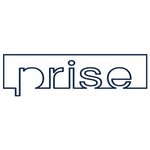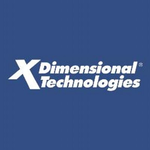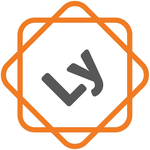Description

Prime Insurance Suite

Solartis
Comprehensive Overview: Prime Insurance Suite vs Solartis
Prime Insurance Suite and Solartis are distinct entities within the insurance technology landscape, offering solutions aimed at optimizing insurance operations. Here's an overview of both:
Prime Insurance Suite:
a) Primary Functions and Target Markets:
- Primary Functions: Prime Insurance Suite is a comprehensive collection of software solutions designed to support the end-to-end processes of insurance companies. These functions typically include policy administration, underwriting, claims processing, billing, and analytics. The suite often emphasizes configurability and scalability, allowing insurers to adapt workflows and processes to their specific business needs.
- Target Markets: The suite primarily targets mid-to-large size insurance carriers, MGAs (Managing General Agents), and brokers. Its modular nature enables it to cater to various lines of business, including personal, commercial, and specialty insurance domains.
b) Overall Market Share and User Base:
- Prime Insurance Suite's market share and user base can vary significantly based on regional presence and specific lines of coverage. Generally, it maintains a competitive position in markets where insurers seek robust, integrated solutions offering extensive functionality across the insurance lifecycle.
c) Key Differentiating Factors:
- Integration Capabilities: One of the key differentiators is its ability to integrate seamlessly with existing IT systems, including third-party applications.
- Comprehensive Nature: The suite offers a wide range of functionalities that cover almost all aspects of insurance operations under one umbrella.
- Flexibility and Customization: Highly configurable solutions that allow carriers to tailor functionalities to their specific needs.
Solartis:
a) Primary Functions and Target Markets:
- Primary Functions: Solartis is renowned for its focus on insurance process automation, with particular strengths in policy lifecycle management, billing, and claims. It emphasizes workflow efficiency and the digitization of manual processes.
- Target Markets: It typically targets insurance companies looking for ways to streamline operations, reduce costs, and improve customer experience through automation, including carriers, brokers, and insurance service providers.
b) Overall Market Share and User Base:
- Solartis may have a smaller market share compared to some larger, more established players in the insurance software space. It is particularly appealing to smaller to mid-sized entities seeking cost-effective solutions to enhance operational efficiency without the extensive overhead of larger systems.
c) Key Differentiating Factors:
- Focus on Automation: Solartis is distinct for its strong push towards automating repetitive tasks, reducing manual intervention, and improving processing speeds.
- Microservices Architecture: Its deployment through a microservices architecture provides flexibility, allowing components to be used independently or alongside other systems.
- Cost-Effectiveness: It positions itself as a more cost-effective solution, particularly appealing to smaller organizations that may not need the extensive features of larger suites like Prime Insurance Suite.
Comparison Summary:
- Market Approach: Prime Insurance Suite offers a broad, integrated solution, while Solartis is more specialized in enhancing specific processes through automation.
- Scalability and Flexibility: While both solutions offer scalability, Prime Insurance Suite's broad functionality may be more suitable for larger entities seeking an all-encompassing solution, whereas Solartis provides flexibility through modular architecture.
- User Base: Prime Insurance Suite typically caters to larger carriers, whereas Solartis targets both smaller entities and specific business units in larger companies seeking focused improvements.
In conclusion, both Prime Insurance Suite and Solartis meet different needs within the insurance technology domain through their distinct approaches to functionality and target markets. Each's suitability will largely depend on the specific goals, size, and operational focus of the insurance entity seeking a solution.
Contact Info

Year founded :
Not Available
Not Available
Not Available
Not Available
Not Available

Year founded :
Not Available
Not Available
Not Available
Italy
http://www.linkedin.com/company/solartis
Feature Similarity Breakdown: Prime Insurance Suite, Solartis
When considering insurance software solutions, both the Prime Insurance Suite and Solartis aim to provide robust, comprehensive platforms for insurers. Here's a detailed breakdown of their similarities and differences in terms of features, user interfaces, and unique offerings:
a) Core Features in Common:
-
Policy Management:
- Both platforms offer tools for managing the entire policy lifecycle, from issuance to renewal.
-
Billing and Payments:
- Each suite includes functionality for handling billing processes, premium calculations, invoicing, and payment collections.
-
Claims Management:
- They provide solutions for tracking and processing insurance claims, including assessment workflows and documentation.
-
Underwriting:
- Automated underwriting capabilities are featured to streamline risk assessment and decision-making processes.
-
Reporting and Analytics:
- Users can access a variety of reporting tools and analytics to track performance and derive insights from data.
-
Integration Capabilities:
- Both suites support integration with third-party applications and services, enhancing versatility and connectivity.
b) User Interface Comparison:
-
Prime Insurance Suite:
- Typically provides a user-friendly, modern interface that focuses on ease of navigation and a streamlined workflow.
- It often incorporates dashboard elements that summarize critical metrics and tasks that need attention.
- Customizable UI elements allow users to tailor the experience to their specific job roles and preferences.
-
Solartis:
- Known for a modular design approach, Solartis emphasizes adaptability with a focus on individual components of the insurance process.
- Their interfaces are usually designed to facilitate quick access to essential functions and maintain consistency across modules.
- Solartis may offer more flexibility in terms of customizing workflows and screen layouts to suit different business needs.
c) Unique Features:
-
Prime Insurance Suite:
- Offers extensive multi-line support, allowing insurers to handle numerous insurance types within a single platform.
- Advanced automation capabilities can handle complex calculations and decision trees with minimal manual intervention.
- The suite might provide enhanced mobile compatibility or dedicated apps for on-the-go access.
-
Solartis:
- Often highlights its microservices architecture, allowing users to pick and choose services based on their specific needs.
- Notable for its cloud-native approach, offering scalability and improved data security features.
- Unique focus on configurable APIs, which can simplify the process of integrating with other systems and improving interoperability.
Both products are designed to cater to various aspects of the insurance industry, but they differ in their emphasis on flexibility, customization, and scalability. These differences can be crucial when choosing a platform that best fits an organization's specific requirements and strategic goals.
Features

Claims Management
Customer Support
Policy Administration
Reporting & Analytics

Claims Management
Billing Solutions
Policy Administration
Customer Engagement
Analytics and Reporting
Best Fit Use Cases: Prime Insurance Suite, Solartis
Prime Insurance Suite and Solartis are both involved in providing solutions for the insurance sector, but they cater to different needs and scenarios.
a) Prime Insurance Suite
For what types of businesses or projects is Prime Insurance Suite the best choice?
Prime Insurance Suite is typically best suited for:
- Mid to large-scale insurance companies: Companies that manage a wide range of insurance products and need an integrated platform to streamline their operations.
- Insurers looking for comprehensive solutions: With functionalities spanning policy administration, claims processing, and billing.
- Firms requiring customization: Businesses that need a high degree of customization in their insurance processes and workflows.
- Organizations aiming for digital transformation: Companies looking to modernize their legacy systems and improve operational efficiencies through digital means.
- Global insurance entities: Those operating in multiple regions, needing multi-currency and multi-language support.
b) Solartis
In what scenarios would Solartis be the preferred option?
Solartis may be preferred when:
- Scalability is a priority: Solartis offers robust scalability, making it suitable for fast-growing companies or those with volatile volume requirements.
- Focus on automation and efficiency: Businesses that prioritize streamlining administrative tasks through automation to reduce costs and improve efficiency.
- Cloud-based solutions needed: Companies that prefer a cloud-first approach for easier maintenance and deployment.
- Emphasis on policy lifecycle management: Firms looking for specialized tools in managing the entire lifecycle of insurance policies, from quoting to issuance, servicing, and renewal.
- Desire for API connectivity: Organizations seeking to integrate with other systems or utilize flexible API tools for enhanced connectivity.
d) Catering to Different Industry Verticals or Company Sizes
Prime Insurance Suite:
- Industry Verticals: Often appeals to traditional insurance sectors such as health, auto, home, and life insurance.
- Company Sizes: Targets mid to large-scale companies needing robust and comprehensive solutions.
Solartis:
- Industry Verticals: More versatile, capable of serving non-traditional insurance markets, including niche insurances and MGA (Managing General Agent) models.
- Company Sizes: Ideal for small to medium-sized enterprises and startups in the insurance domain, given its scalable and flexible product offerings.
Both Prime Insurance Suite and Solartis possess adaptable features that can be tailored to support a wide array of industry requirements and company sizes. Their choice largely depends on specific business needs such as the scale of operations, focus areas (like efficiency vs. comprehensive management), and technological preferences (cloud vs. on-premises).
Pricing

Pricing Not Available

Pricing Not Available
Metrics History
Metrics History
Comparing teamSize across companies
Conclusion & Final Verdict: Prime Insurance Suite vs Solartis
To provide a comprehensive conclusion and final verdict for Prime Insurance Suite and Solartis, it's essential to evaluate various aspects such as cost, functionality, user experience, integration capabilities, support, and scalability. Here's an analysis considering these factors:
a) Best Overall Value
Prime Insurance Suite tends to offer a robust all-in-one solution specifically tailored for insurance companies, with advanced features for underwriting, policy management, claims processing, and billing. It's highly customizable, which is beneficial for companies with specific needs.
Solartis, on the other hand, excels in offering modular, cloud-based solutions that are easily scalable, focusing strongly on automation and efficiency in insurance processes. It's particularly beneficial for companies looking to leverage technology to optimize their operations.
Best Overall Value: Depending on the company’s needs, Solartis generally offers the best overall value for businesses prioritizing cloud-based solutions and automation. However, if the primary objective is comprehensive customization within an integrated suite, Prime Insurance Suite might be more valuable.
b) Pros and Cons of Each Product
Prime Insurance Suite:
Pros:
- Comprehensive and integrated solution for all insurance needs.
- High level of customization to meet specific business requirements.
- Established reputation and reliability in the market.
Cons:
- Potentially higher cost due to extensive features.
- Complexity might require longer implementation time.
- Customization can lead to more complicated maintenance.
Solartis:
Pros:
- Strong focus on cloud-based operations and scalability.
- Automation features enhance productivity and accuracy.
- Lower initial investment due to a modular pricing model.
Cons:
- May require integration with other systems for certain features.
- Less specialized focus compared to a full-suite solution.
- Companies may need to invest in workforce training to utilize automation features fully.
c) Recommendations for Users
-
Assess Needs and Goals: Companies should clearly define their goals. If they are looking for advanced customization and a wide range of integrated features, Prime Insurance Suite might be more appropriate. If scalability, modernization, and automation are priorities, Solartis could be the better choice.
-
Consider Budget and Costs: Carefully analyze the cost structures, including initial implementation, ongoing licensing, customization, and potential hidden costs. Solartis may offer a more flexible pricing model with its modular approach.
-
Evaluate Integration and Compatibility: Check how each product will integrate with existing systems. Prime Insurance Suite's comprehensive nature might reduce the need for external systems, while Solartis might require more integration work.
-
Implementation and Support: Consider the ease of implementation and the quality of customer support offered by each provider. Prime Insurance Suite may have a steeper learning curve due to its complexity.
-
Future-Proofing: Given the rapid technological evolution in the insurance industry, look for a solution that not only meets current needs but is also adaptable to future changes. Solartis’s cloud-based model might provide an edge in terms of future-proofing.
In conclusion, both Prime Insurance Suite and Solartis bring valuable offerings to the table, and the right choice ultimately depends on the company’s specific requirements and strategic goals. Businesses should conduct thorough assessments and may even consider trial sessions or pilot implementations to get firsthand experience before making a final decision.
Add to compare




